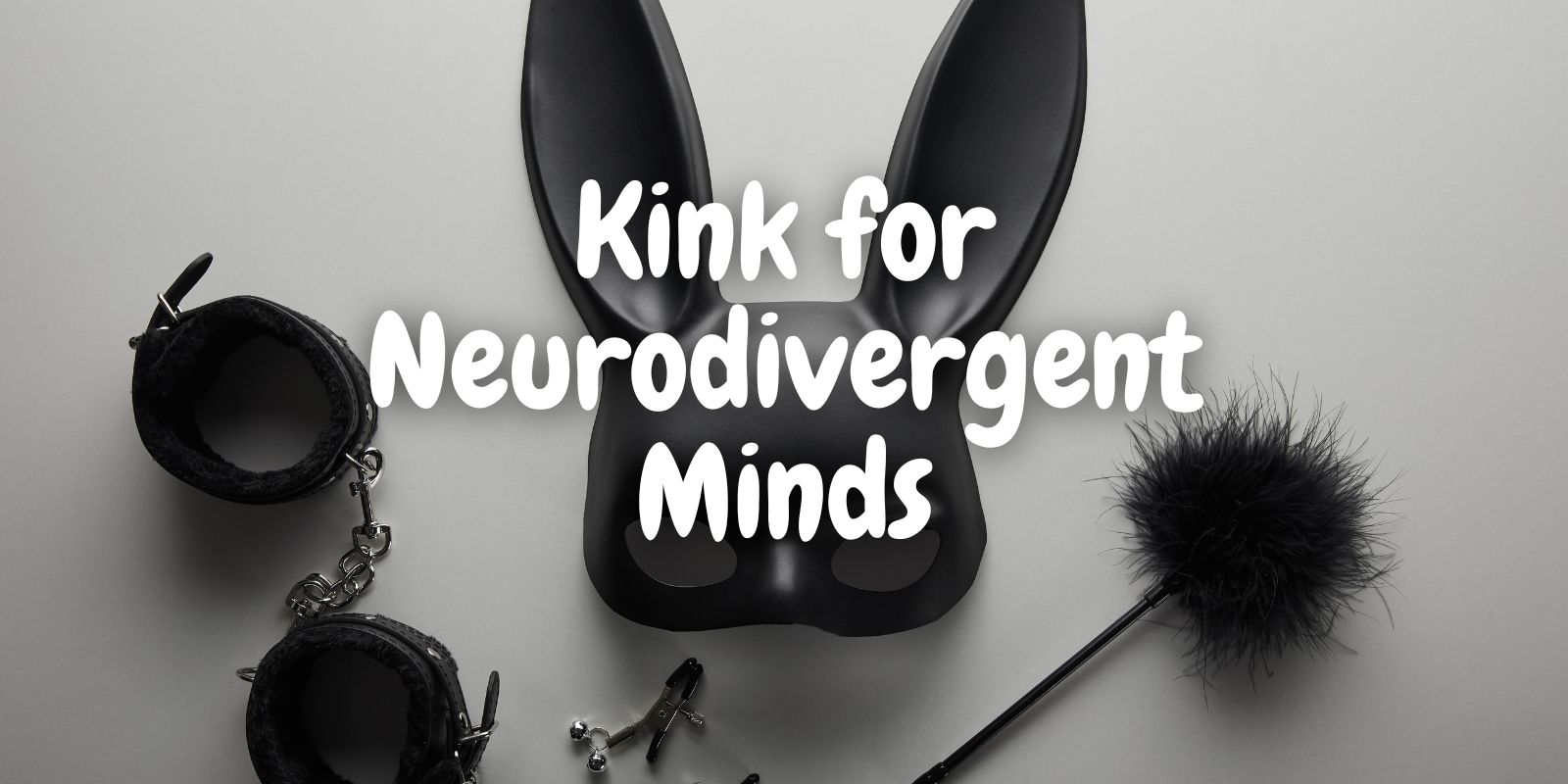Kink for Neurodivergent Minds: Safety, Adaptation, and Expression
Kink for Neurodivergent Minds benefits from routine, clarity, and trust. Many players enjoy structure that reduces guesswork and stress. With thoughtful planning, scenes feel safer and more satisfying.
This guide explains why kink appeals here, how to adapt sensory input, and ways to improve communication. You will get practical tips you can apply today.
Table of Contents – Kink for Neurodivergent Minds
- Why Kink Appeals to Neurodivergent Minds
- Sensory Needs and Adaptation
- Building Communication and Trust
- Practical Tips for Neurodivergent Players
- Key Takeaways
- FAQ: Neurodivergence and Kink
Why Kink Appeals to Neurodivergent Minds
Kink for Neurodivergent Minds is appealing because it offers structure, rules, and defined roles. Many neurodivergent people thrive in environments where expectations are clear and rituals signal when a scene begins and ends. This predictability reduces social guesswork and makes play feel more secure. The defined frameworks in kink—like contracts, rituals, or protocols—create comfort while still leaving room for excitement and creativity.
Another reason kink resonates is the chance to design scenes that match personal sensory needs. Where day-to-day life can feel chaotic or overwhelming, kink allows control over intensity, pace, and environment. By choosing the right tools, toys, and settings, players can focus on the parts of play that bring joy while reducing elements that may cause stress. This adaptability makes kink a uniquely flexible outlet for self-expression.
Community plays a large role as well. Inclusive kink spaces often acknowledge and celebrate different needs, offering room for people to feel accepted. Articles like Neurodiverging’s overview highlight how understanding and respect create belonging. For neurodivergent minds, this support is not just about sex—it is about being seen, valued, and given permission to play on their own terms.
Sensory Needs and Adaptation
Kink for Neurodivergent Minds often begins with understanding sensory needs. Some people are highly sensitive to touch, sound, or light, while others seek stronger input to stay engaged. Adapting play to these needs makes kink not only safer but also more enjoyable. Soft fabrics, adjustable lighting, or carefully chosen background music can turn a scene from overwhelming into calming. Knowing which sensations soothe and which overstimulate is a vital step in designing play.
Exploring different toys and restraint styles also helps. For instance, heavy impact might overwhelm one person but provide grounding focus for another. Gentle bondage with cuffs or ropes offers predictable pressure that can feel secure rather than stressful. The Bondage and Fetish Play guide explains how varying restraints and textures can change sensation dramatically. By adjusting intensity and pacing, players create experiences that match individual thresholds while still building trust and excitement.
Adaptation is about flexibility and consent. Communicating sensory limits ahead of time allows partners to avoid unhelpful triggers. For solo play, keeping notes on what worked and what did not helps shape future scenes. Neurodivergent players often find that these adjustments bring comfort and control, making kink a positive space where their needs are not only accepted but embraced.
Building Communication and Trust
Kink for Neurodivergent Minds depends on communication that is clear and reliable. Many neurodivergent players benefit from direct language, written notes, or visual signals that reduce uncertainty. This structure helps partners avoid confusion and makes space for trust to grow. Articles like the Sexual Health Alliance’s guide stress that consent must be simple, repeatable, and adapted to the people involved. Predictable cues and steady aftercare are not optional—they are the foundation of safe play.
From my own experience, I’ve found that journaling and clear checklists help me and my partners stay aligned. I often use written notes before and after scenes so there is no doubt about needs or limits. This small step builds confidence and deepens intimacy. For neurodivergent minds, trust comes from knowing communication is not left to chance but built into the scene itself.
Practical Tips for Neurodivergent Players
Kink for Neurodivergent Minds benefits from routines, structure, and personal adaptations. Many players thrive when scenes are predictable and clear. Simple practices like setting up the same play space, using familiar gear, and following checklists can reduce stress. Even cleaning gear regularly helps build a sense of order and control, as noted in the guide on Clean Your BDSM Toys.
Identity also plays a part. Neurodivergent players may view sexuality differently, and embracing this can make play feel more authentic. Resources such as Our Perception of Sexuality highlight the importance of self-acceptance in kink. By respecting these differences, partners and communities can create spaces where needs are met without judgment. The following tips can help make kink more accessible and rewarding:
- Keep scenes simple and avoid adding too many new elements at once.
- Use consistent rituals to mark the start and end of play.
- Write down limits and share them clearly with partners.
- Schedule downtime or aftercare before starting intense play.
- Check in with yourself after scenes and adjust plans as needed.

Key Takeaways – Kink for Neurodivergent Minds
- Kink for Neurodivergent Minds works best with structure, clarity, and predictable rituals.
- Sensory needs should guide play—adapt tools, intensity, and environment to fit comfort.
- Trust grows through direct, simple communication and repeatable aftercare routines.
- Identity and self-acceptance shape how neurodivergent players experience kink.
- Routines, checklists, and reflection make kink safer, calmer, and more rewarding.
FAQ: Neurodivergence and Kink
Is kink safe for neurodivergent people?
Yes, with planning. Adapt intensity, set clear rules, and always have strong communication before and after play.
How do I manage sensory overload during scenes?
Keep tools simple, control lighting and sound, and agree on safe signals to pause or stop if needed.
Can neurodivergent players be dominants as well as submissives?
Of course. Roles should match interests, comfort, and communication style, not assumptions about neurodivergence.
What helps build trust with partners?
Use direct language, written notes, and consistent rituals. These reduce confusion and strengthen connection.
How can I make kink more accessible for myself?
Start small, use routines, and keep a journal of what works. Adjust scenes gradually and reflect after each one.

Sexpert Ray shares practical, no-nonsense advice on BDSM, kink safety, and sexual confidence, drawing from real experience in the lifestyle.



